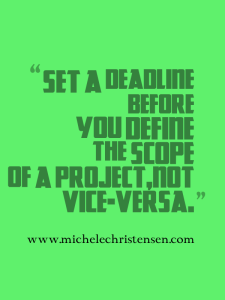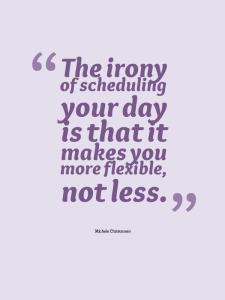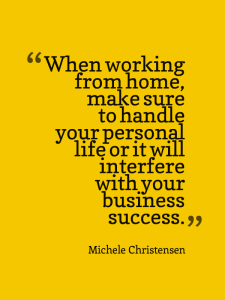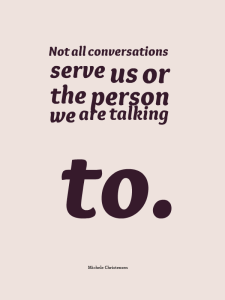 Burnout is a very real risk for solopreneurs. We wear all the hats in the business, and it’s so easy to just get caught up in the treadmill of never ending work. It’s easy to buy into the myth that if you just work harder somehow it will all get done. However, it’s simply not possible to ever get everything done. No matter how much you do, there’s always more you could be doing so the work is never actually done.
Burnout is a very real risk for solopreneurs. We wear all the hats in the business, and it’s so easy to just get caught up in the treadmill of never ending work. It’s easy to buy into the myth that if you just work harder somehow it will all get done. However, it’s simply not possible to ever get everything done. No matter how much you do, there’s always more you could be doing so the work is never actually done.
What you can do is set limits on how much you work and make good choices about what to leave undone. Otherwise, burnout is a very real possibility. Over the long haul, burnout can sap your enthusiasm for your work and leave you tired, worn down and unable to focus.
The long term effects are tragic, but what about the short term effects? Sure it’s fine to push yourself for a short while but working long hours and not taking time off has a very real risk in the short run. In the short run, not taking time off can cause you to temporarily lose focus. You might find yourself forgetting why you walked into a room, going to the store for 3 things and not being able to remember them, sleeping poorly or feeling lethargic. These minor effects might not seem too serious, but expanded into other areas of your life the lack of focus might mean you don’t pay attention while driving, miss appointments, or skip medications. These effects can be serious or even deadly.
One of the recurring themes I come across in my work is that business owners work too hard for it to be sustainable. As I’ve mentioned, a short push is okay but when you get into months of long weeks there are very real risks. Sometimes when I point this out, I get the impression that the other person thinks I’m patronizing them or trying to butter them up about being such a hard worker. The truth is when I see someone working too hard for their own health and safety I feel like it’s important to point it out. I feel like sometimes I spot it because I’ve done it to myself as well. I’ve never had a serious incident, but have had more than my share of absentmindedness due to burnout. Two people close to me have had car accidents because of burnout.
I talk about burnout and working too hard a lot. Please don’t think I’m patronizing. It’s a very real risk in the long run. If you burn out and leave your business, the world won’t get what you have to offer. You also put yourself and others at risk when you can’t focus. Take regular breaks, take days off and take vacations. Always remember that the work will never be all done.
Have you had burnout? How did it impair you? Share it in the comments, and tell me how you’ll prevent burnout in the future.










